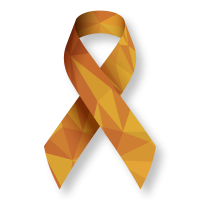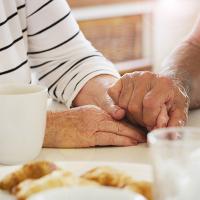As a cancer caregiver your focus will be on your loved one as you work to support them, both physically and emotionally. It's important to recognise that the experience can be particularly challenging for you too though, and there will be times when you're going to need a little more love and support yourself.
As you look after the patient, someone needs to look out for you too. With this in mind, it's important to monitor yourself and be aware of your limits so you can seek help when you need it. A strategy for self-care will help protect your mental and physical health as you focus your energy on your loved one in need. Caregiver anxiety is real, and if you’re feeling its influence, it's time to consider some self-care tips and strategies.
- The Challenges of a Cancer Caregiver
- The Causes of Caregiving Stress
- The Warning Signs of Stress and Burnout
- Self-Care Tips for Cancer Caregivers
- It's Important to Make Time for Self-Care

The Challenges of a Cancer Caregiver
When you’re caring for someone almost 24/7, physical, financial, and social challenges can impact your mental health. You may experience:
- Stress: Cancer patient caregiver stress can become exhausting over time. While some stress is good, too much of it at once can overwhelm you.
- Anxiety: The daily requirements of caregiving can add up fast. If you often feel fearful, nervous, or upset throughout the day, it could indicate that you're dealing with a more serious anxiety issue.
- Depression: Any kind of loneliness or helplessness you feel while caring for a cancer patient could lead to depression. Depression can take away your ability to eat properly, sleep, or even participate in the things you enjoy.
- Mood Swings: Another common sign that you might be experiencing cancer caregiver depression or anxiety is the presence of mood swings. While you may feel happy or excited at one moment, your mood can change rapidly at any time.
The Causes of Caregiving Stress
Caregiving can be a positive, rewarding experience that brings people closer together. On the other hand, caring for someone in need also brings forth various challenges that can contribute to mental health concerns. Some of the main causes of caregiving stress include:
Anxiety of losing a loved one: Sometimes when you love someone who has cancer, you have to face the reality that you might lose them. This can cause anxiety and uncertainty in your daily life.
- Managing the cancer patient's fear: In addition to your own anxiety, you may spend time trying to help the patient work through their own fear. Dealing with someone else's feelings on top of yours can add an extra layer to your stress.
- Volatility of relationships: Strained relationships with your patient and with other members of your family can have a major effect on your mental health.
- Managing finances: If you're going through financial challenges, it may cast doubt on whether or not you can provide for yourself and the cancer patient.
- Social isolation: When you're caring for someone full-time, you likely have less time to spend with other friends and family. Feeling isolated or lonely can start to make you feel more depressed or anxious over time.
- Lack of choice: While we often want to look after the people we love, sometimes taking on the role of a caregiver feels like it's taking away your ability to choose. Feelings of being trapped can even surface in some situations.
The Warning Signs of Stress and Burnout

If you think any of the above challenges could be causing stress and burnout, there are a few signs of caregiver anxiety to keep in mind. These warnings could indicate that it's time to take action:
- Sleep Issues: Too much sleep or too little sleep may mean that you're feeling overwhelmed or stressed. Mental health affects your sleep, and likewise, your sleep schedule affects your mental health.
- Weight Changes: Cancer patient caregiver stress or depression can cause you to start losing or gaining weight. This is because stress can affect your metabolism. In some cases, it can even change your appetite.
- Irritation or Anger: Irritability is another major sign of caregiver stress. If you feel angry or frustrated more often than usual, it could mean that you're experiencing burnout.
Self-Care Tips for Cancer Caregivers

To curb some of the effects of cancer caregiver depression, you need to take care of yourself. Regardless of your caregiver status, you’re a human being too, and you deserve to feel safe and loved. Here are a few tips to help you take control of your mental health1:
- Recognise the signs of stress, anxiety, or depression: The first step toward healing is recognising when you’re showing major signs of stress, anxiety, or depression. Catching these signs early on can help you determine when to ask for help or make a change. From there, you’ll be able to take other steps to improve your health.
- Talk to friends and family: If you have friends and family you’re close to, opening up to them about how you feel might help. Getting negative emotions off your chest is healthy — and the people you love can offer their support as well.
- Talk to your doctor: If you have persistent anxiety or depression symptoms, it could be time to visit your doctor and talk about possible solutions. Sometimes, a professional can help you when family support or individual coping mechanisms are only part of the solution.
- Eat healthy, nutritious meals: Eating well is an important part of maintaining your physical and mental health. When you provide your body with nutritious meals every day, you'll build up energy and feel more equipped to take on each day's tasks.
- Find an outlet: One of the best types of self-care for cancer caregivers is outlet-based. If you have a hobby such as music, crafting, or exercise, making time for these interests can help you decompress after a long day. It's a great way to relieve tension and take your mind off of potential stressors for a while.
- Join a support group: You may benefit from joining a support group if you’re having a hard time finding support in your life from family, friends, or coworkers. This can help you foster connections with those who are dealing with similar issues. Support group discussions can help you enjoy some much-needed social interaction while getting in touch with your emotions, and perhaps even receiving a few helpful caregiving tips.
- Take a break when you need it: Everyone needs a break now and then. Setting aside some time for yourself can do wonders for your mental health. Whether this involves doing something you enjoy or simply taking a quiet afternoon to relax, you could benefit from a little downtime. If you need a break, consider lightening the load by delegating some of the responsibilities to other family members.
- Find transportation and financial help: If you have other friends or family in your life who can help out with transportation or finances, it's okay to ask. In many cases, the people close to you will be happy to offer support if they can.
- Define your limits: Defining a set of limits ahead of time is a healthy way to set boundaries when you're caring for someone. If you reach those limits, it might be time to make a change or start talking to other family members about reducing your workload. This can help you develop a strategy that works better for everyone.
It's Important to Make Time for Self-Care
Beating caregiver anxiety and depression means setting aside time to take care of yourself. That may involve asking for help from family, enjoying some alone time, or reaching out to a professional. While we know being a caregiver presents its own set of challenges, you have what it takes to conquer those challenges each day and be there for the ones you love.
Cxbladder is a Non-invasive Surveillance Alternative for Those Recovering from Bladder Cancer
If a loved one is recovering from non-muscle invasive bladder cancer and undergoing regular surveillance cystoscopies, we recommend they ask their doctor about Cxbladder. Cxbladder is an accurate and non-invasive surveillance alternative designed to rule out the return of bladder cancer. The test provides reliable results with a single urine sample, helping to reduce the frequency of cystoscopy required.
Learn more about Cxbladder Contact us for more information
References:
1. https://www.cancer.gov/about-cancer/coping/caregiver-support






